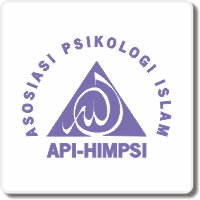The Development and Effectiveness of Social-Emotional Training: Portrait of Teachers and Students in Madrasah
DOI:
https://doi.org/10.32923/psc.v6i2.4920Keywords:
madrasah, social emotional learning, social skills, student's development, participatory action researchAbstract
Social-Emotional Learning (SEL) is a learning program recommended by the Ministry of Education and Culture of Indonesia to be implemented to increase students' mental health. This study aims to develop a psycho-education program called Social-Emotional Learning (SEL) based on participatory action research which results in 10 sessions for this program. Furthermore, researchers also examine the effectiveness of it in increasing teachers’ knowledge about student development, the student’s social skills, and student’s perceptions about the implementation of SEL in schools. The participants are 30 teachers from several schools who were assigned to the experimental group with a pre-post one group study design. Also, some teachers assessed 30 students to know the increase in their social skills, and five students participated in interview sessions. Before and after the implementation of the training program, teachers were given a pre-test and post-test related to the knowledge about student’s development (physics, cognitive, social, and emotional) and students were assessed by their teachers (pre and post) related to student’s social skills (communication, cooperation, assertive, responsible, empathy, engagement, self-control). Results showed there is increasing teacher’s knowledge about student’s development with Z = -3.839, p = 0.000 and also there is increasing in children’s social skills with the value t = -4.071, p = 0.000. Furthermore, based on student’s perceptions, there are five themes, and seven categories obtained, which is student’s feeling satisfied with the implementation of SEL in learning.
Downloads
Published
Issue
Section
License
Copyright Notice
The Psychosophia: Journal of Psychology, Religion, and Humanity is under the Creative Commons Attribution 4.0 International (CC-BY 4.0) License, according to which:
1) Authors retain copyright and grant the journal the right to first publication, with the work simultaneously licensed under the Creative Commons Attribution (CC-BY 4.0) that allows the sharing of articles published with the acknowledgment of authorship and the initial publication in this journal.
2) The authors are authorized to make additional contracts separately for distribution of the version of the work published in this journal (for example, publication in an institutional repository or as a chapter of the book), as long as there is recognition of authorship and initial publication in this journal.
3) Authors are authorized and encouraged to publish and distribute their work online (for example, in institutional repositories or on their personal pages) at any time before or during the editorial process, as it increases the impact and reference of the published work.






